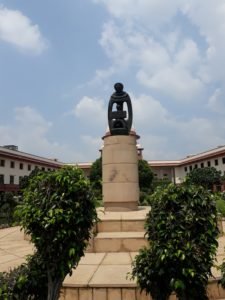The case involves several appeals concerning the custody of minor children by individuals referred to as “adoptive parents”.
The “adoptive parents” had approached the High Court with nine Writ Petitions, seeking a declaration that the police action of taking custody of minor children from them and handing them over to the Child Welfare Project Director was illegal and violated Articles 14 and 20 of the Constitution of India.
One specific instance mentioned involved respondents No. 1 and 2 asserting they learned through a common friend that a twenty-day-old baby girl, S.Rishika, was put up for adoption, and they adopted her on January 26, 2024, from her biological parents. Another instance involved respondents No. 1 and 2 claiming to be adoptive parents of a minor child, B.Sresta, whom they adopted at two days old on January 22, 2024, from her biological parents.
The learned single Judge had, by a common order dated September 23, 2024, allowed the Writ Petitions and held that the provisions of the Juvenile Justice (Care and Protection of Children) Act, 2015 (“the Act”) did not apply to the factual situation. The single Judge also granted liberty to the appellants to adopt the procedure prescribed for continuation of the children’s custody through validly executing adoption deeds or other procedures.
The Child Welfare Project Director, Women, Children, Disabled and Senior Citizen and Welfare Department, Medchal, Malkajgiri District and Directorate of Women Development and Child Welfare Department appealed this common order. The Division Bench of the High Court later disposed of these appeals, setting aside the single Judge’s order and observing certain points about the children’s custody.
Law Involved
The Juvenile Justice (Care and Protection of Children) Act, 2015 (“the Act”), particularly Sections 36, 37, and 38.
Articles 14 and 20 of the Constitution of India (cited by petitioners in their original Writ Petitions claiming violation).
Article 142 of the Constitution of India (invoked by the Supreme Court to do complete justice in the matter).
General principles in Section 3 of the Juvenile Justice (Care and Protection of Children) Act, 2015, including:
Principle of best interest: All decisions must be based on the primary consideration that they are in the best interest of the child and help develop their full potential.
Principle of family responsibility: The primary responsibility of care, nurture, and protection of the child lies with the biological family or adoptive or foster parents.
Principle of safety: Measures must be taken to ensure the child is safe and not subjected to harm, abuse, or maltreatment.
Positive measures: Resources must be mobilised for the well-being and development of identity, promoting an inclusive and enabling environment, and reducing vulnerabilities.
Principle of institutionalization as a measure of last resort: A child should be placed in institutional care only as a last resort after reasonable inquiry.
Principle of repatriation and restoration: Every child in the juvenile justice system has the right to be re-united with their family at the earliest and to be restored to the same socio-economic and cultural status, unless it is not in their best interest.
Reasoning
The Supreme Court found that ends of justice would be served by directing the return of the children to the “adoptive parents”.
The Court emphasized that the decision was in the best interest of the children, owing to the bonding between the “adoptive parents” and the children.
The Court applied the principles enunciated in Section 3 of the Juvenile Justice (Care and Protection of Children) Act, 2015, particularly the principle of the best interest of the child, principle of family responsibility, principle of safety, positive measures, principle of institutionalization as a measure of last resort, and principle of repatriation and restoration.
The Court acknowledged that the children in question are in custody since May 22, 2024, and that the factual matrix indicated they were not inclined to disturb the custody of the children on account of non-compliance with Sections 36, 37, and 38 of the 2015 Act.
The Court further noted that the previous order passed by the Division Bench of the High Court was not entirely in the best interest of the children concerned, leading them to invoke powers under Article 142 of the Constitution to do complete justice.
The Court sought to safeguard the best interest of the children by directing the Member Secretary of the State Legal Services Authority and/or the Member Secretary of the District Legal Services Committee to oversee the welfare and progress of the children.
Holding
The Supreme Court granted leave in the appeals.
It directed the respondent-authorities to hand over the custody of the children to the respective “adoptive parents” on or before August 14, 2025, by 05:00 PM.
As a safeguard for the children’s best interest, the Member Secretary of the State Legal Services Authority and/or the Member Secretary of the District Legal Services Committee, having jurisdiction over the “adoptive parents,” are directed to seek reports on the welfare and progress of the children quarterly, starting November 2025.
A Child Welfare Expert may be deputed to inspect the home where the child and the “adoptive parents” reside to ensure their welfare and progress.
The Court clarified that its order, having been passed in the best interest of the children, implies that their adoptive parents have been with them for a few months.
The appeals were disposed of in accordance with these terms.
The Committee (likely referring to a Child Welfare Committee) shall pass an order under Section 37 of the 2015 Act within two weeks.
Adoptive parents must seek adoption from the competent authority within four weeks from today.
Custody of children is subject to the outcome of these directions.
A copy of the report may also be submitted to the jurisdictional Child Welfare Committee.
DASARI ANIL KUMAR V CHILD WELFARE PROJECT DIRECTOR
Supreme Court: 2025 INSC 972 (DoJ 12-08-2025)






